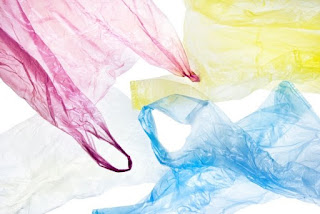A
year ago, the European Union made it compulsory for member states to take
measures against very lightweight plastic bags, to keep yearly average use
below 80 per person. As a result, the Netherlands introduced a ban on free
plastic bags at the beginning of 2016. Lightweight plastic bags are, however,
still allowed to be used for buying fruit and vegetables in supermarkets and on
markets.
France
has decided to take much stricter action. As of 1 July 2016, all single-use
plastic bags with a thickness of less than 50 microns have been banned, regardless
of their size and whether they are free or not. Consumers have to use reusable
plastic bags (which are thicker than 50 microns) or bags made from something
else. As of 1 January next year, all disposable plastic packaging, (as used for
packaging all fruit and vegetables) up to the same thickness of 50 microns will
be banned. Supermarkets in France had already decided to stop giving away free
plastic bags earlier. Read more in this French article.
 The
European directive also
includes rules regarding so-called bioplastics. A standard needs to be
developed for packaging which is suitable for home composting. The European
Commission does not regard bioplastics which degrade using oxygen
(oxo-degradable plastics) to be a solution to litter.
The
European directive also
includes rules regarding so-called bioplastics. A standard needs to be
developed for packaging which is suitable for home composting. The European
Commission does not regard bioplastics which degrade using oxygen
(oxo-degradable plastics) to be a solution to litter.
The
new French legislation, in compliance with the European directive, also sets
standards for bioplastics. For instance, in the future they must be home
compostable (breaking down within 6 months at a temperature of 26 degrees).
Plastic bags which break down via oxo-degradation are not considered a solution
to litter.
However,
the French legislation has failed to set a standard for the biodegradability of
bioplastics in water. When bioplastics enter water and do not break down, the
use of bags made from biodegradable plastics does not solve the problem of
plastic soup.
No comments:
Post a Comment